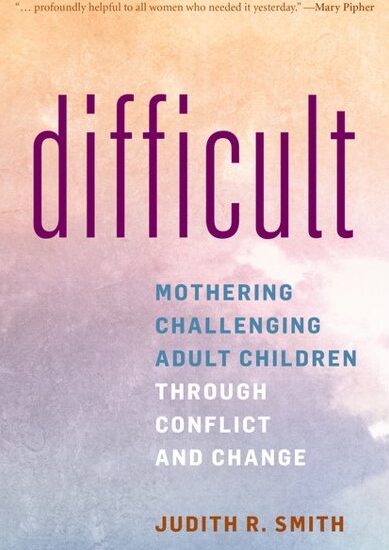On last night’s episode of NBC’s hit show “The Biggest Loser,” trainers Bob Harper and Jillian Michaels were extremely disappointed in the terrible results their clients achieved the week before. “I want to see numbers on that scale that represent what Jillian and I are all about!” Bob exclaimed, yelling out into the gym, “I’m thinking I want to hurt someone I haven’t been able to hurt for a long time.” Contestants had trained at Camp Pendleton, the famed Marine training ground, and had mostly posted unacceptable weight loss of a pound or two for the week. In fact, three players gained weight for the week, unheard of in Biggest Loser history. It got Bob pissed, and it got us at the Center for Health, Media and Policy at Hunter College wondering: what the hell are they doing at that ranch? What goes on in their normal environment if a week at Camp Pendleton is like a week at the Cheesecake Factory? So we’re blogging The Biggest Loser this week and for the rest of the season to take a closer look, calling on experts from various health care professions to help us understand what this enormously popular and profitable expression of health issues is all about.
It’s a weird time to be a fat person in America. In an era when most of us strive to treat each other with sensitivity about a myriad of physical and cultural differences, overweight people, with their “self-created” problems, don’t rate much consideration. The fashion and entertainment industries are notorious for their plus-size unfriendly ways. Even against this background, the current cultural mood towards the heavy seems to be shifting into a harsher gear, seeing them increasingly as moral degenerates and a civic burden. The right predicted years ago that if cigarette smoking was culturally vilified, eventually twinkies would be too, and, for better or worse, they were right: NYC has banned trans fats and has floated taxing sugar-based drinks; many other municipalities are following suit. What was once a personal struggle to eat well has acquired new civic and moral weight. So, with our country agog about the obesity epidemic and its related health care costs, with Michelle Obama dedicating herself to helping all kids be as sleek and fit as Malia and Sasha, and with Mika Brzezinski smugly purring about her daily runs and abhorrence of carbs every morning on MSNBC’s Morning Joe, The Biggest Loser occupies a strange place in our current cultural landscape. With all due respect to the fat acceptance movement, most of us don’t dispute that being severely overweight is not healthy, but you have to wonder what’s going on when seven million people tune in weekly to cheer as the obese are pushed to exercise until they vomit or are hospitalized.
One of NBC’s top-rated shows (after football, of course), The Biggest Loser receives over 200,000 submissions from hopeful cast members and draws almost 7 million viewers per week, second only to ABC mega-hit “Dancing with The Stars” in its Tuesday time slot. Certainly the show enables obese people to lose hundreds of pounds that they almost certainly would never lose on their own. In a way, the show depicts a universal struggle shared by even those wearing sample sizes; grappling with that destructive and/or compulsive thing we all do that we wish we could change but can’t seem to. Champions of the show would say that The Biggest Loser’s real currency is hope. However, with its widely criticized extreme weight loss practices, and undercurrent of sadism and voyeurism (is it REALLY necessary to conduct semi-nude weigh-ins for 25 minutes?), the show trades heavily on our bedrock cultural revulsion at body fat (see the recent Marie Claire mishegas, par example), and becomes, at times, a parade of punishment instead of the beacon of hope supporters claim it is. It’s also massively profitable, with over $100 million dollars annually in merchandizing sales. If your sister-in-law in Boise or Brooklyn or rural Missouri wants to start a diet, chances are that you’ll find her with a Biggest Loser protein pack or Biggest Loser dessert cookbook or one of the other 50 items that Amazon stocks associated with the show. That doesn’t count the Home Shopping Network Biggest Loser Line. In America right now, The Biggest Loser IS weight loss.
Now in its tenth season and sixth year, The Biggest Loser has been exposed for its troubling practices, and promised to change, but it hasn’t. The New York Times wrote a chilling expose of the show a year ago: “On ‘The Biggest Loser,’ Health Can Take a Back Seat” (November 24, 2009) detailing how contestants urinate blood due to self-imposed dehydration before weigh-ins.
Most infuriatingly, the year-old New York Times piece quotes the show’s medical advisor, Dr. Rob Huizenga, of U.C.L.A., admitting to unsafe practices and promising to change them.
“ ‘If we had it to do over, we wouldn’t do it,’ Dr. Huizenga said of the recent one-mile race that resulted in hospitalizations. ‘It was an unexpected complication and we’re going to do better,’ he said, adding that ‘that challenge has changed a lot of the way we do things,’ including more closely monitoring contestants’ body temperatures during exercise.”
How did this season open? With some hopefuls doing that same one-mile race, while others stepped 500 steps. That one-mile race they “wouldn’t do over” resulted in an ambulance carting off Corey, from Portland, Oregon, who weighed 391 lbs when he tried to run that mile. In Boston, 30 year old Elizabeth, a Nurse Practitioner who started the show weighing 244 lbs, collapsed on the stepper and required oxygen. She was personally selected for the competition by trainer Jillian Michaels, deeply impressed that Elizabeth had pushed herself to work out until her body shut down. Elizabeth is still on the show, and collapsed again last week at Camp Pendleton, becoming unconscious and her eyes rolling back in her head as the cameras rolled. She also posted a disappointing weight gain of one pound last week. But Elizabeth is lucky to still be on the show.
On last night’s episode, the two teams were disbanded and contestants were paired, with the six men in three teams and the four women in two teams. Elizabeth’s response was a half-hearted “girl power” into the camera. This new women vs. men configuration makes it impossible for the women’s teams to compete physiologically, (which is why evil Brendan ate those 3500 calories to win the right to draw the teams that way – reality shows need villans, you know). Elizabeth didn’t have to worry, though. The men are keeping the women around in the end because they are less of a weight loss threat than the other men. So even though Elizabeth lost eight pounds in seven days, she finished in the bottom, (one contestant lost 19 pounds; others lost 18, 16, and 12 pounds – IN ONE WEEK) but was spared elimination because of strategy on the part of her fellow players. In the nine seasons of The Biggest Loser, three have been won by women, and six by men, despite the fact that more American women than men are obese. 200-something pound women just can’t compete with 300 and 400-something pound men in a competition where extreme rapid weight loss is the goal. I wanted to hug the nervous, self-doubting Elizabeth as she clung to girl power and tell her, don’t worry. Gender warfare is the least of your problems, honey. We just have to keep your eyes from rolling back into your head.
Elizabeth’s partner this week was sad-eyed Lisa, 31, from Norman, OK, starting weight: 288 lbs. The mother of two was motivated to be on the show when she found her daughter unconscious, hungry and dehydrated from crash-dieting in an attempt to not be fat like her mom. Being fat makes you a terrible parent! After last week’s weigh-in at Camp Pendleton, Lisa enraged trainer Bob by losing only two pounds. Bob’s reaction: “We expect way more out of all these contestants…. Two pounds is unacceptable.”
Registered dietician Jennifer Andrus, MS, RD, CDN, CDE, of eattobefit.com, disagrees: “The Biggest Loser creates incredibly unrealistic and unhealthy expectations about the rate of weight loss. The artificial setting of the show does not translate to real life weight loss, which is different, but entirely possible. Not only is a speedy rate of loss unhealthy for your body, it discourages healthy dieting because it sets people up for frustration when they don’t get fast dramatic results. There is a strong consensus that healthy weight loss is .5-2 lbs a week. However, I do think that “The Biggest Loser” has actually been quite inspirational for many people, and the competitive nature of the show can be something fun that people enjoy replicating.”
This week’s most buoyant moment, in fact, came from the two contestants who were booted off and were left to replicate the game’s work in a more normal setting, in their homes. In a live segment, Bob (whose contract seems to include a lot more product placement and lame remote segments than Jillian’s does.) showed up at gentle 29 year old doting father Aaron’s house (starting weight: 468 lbs) for a real-time check in. The kind Jessie also showed up, looking at least 150 pounds slimmer than his initial 369. Season 10’s theme is “Pay It Forward,” so we will be watching next week to see next week how “The Biggest Loser” manages to package extreme weight loss under totally unique conditions as a social good for all. We’ll also be taking a look at the show’s strange relationship to its own $250,000 prize.









Pingback: Last Night’s The Biggest Loser: Gender Warfare Is The Least of Your Problems, Honey / November 10, 2010
/
Miranda Spencer / November 10, 2010
After reading this post and Jennifer Pozner’s book “Reality Bites Back,” I’m seeing that sadism (not the sexual kind) is becoming must-see TV. This is truly sick. There is not such a long distance between this and Abu Gharaib; it’s a similar mentality –dehumanization of “the other”– dressed up to be socially acceptable entertainment.
/
meg olmert / November 10, 2010
Tristan, great job. 700 million Americans and at least one network need to worry about their sick minds! Paddy Chayefsky is rolling in his grave.
/
Christine Moffa / November 12, 2010
I caught part of the Camp Pendleton episode and couldn’t believe how the trainers were behaving! Isn’t Bob supposed to be the nice one? The show is supposed to be about teaching people to make healthier food and activity choices. how is it helpful to put them in an environment where they can’t control the type of food served and then yell at them for gaining weight? I’d be curious to know there relapse rate.
/
tristinaaron / November 12, 2010
Good point, Christine. The NY Times article I linked to says that the relapse rate (according to the show) is 50%.
/
Pingback: Last night’s “The Biggest Loser:” Do It For Your Family « CHMP / November 17, 2010
/
Pingback: CHMP on "The Biggest Loser" / March 7, 2011
/